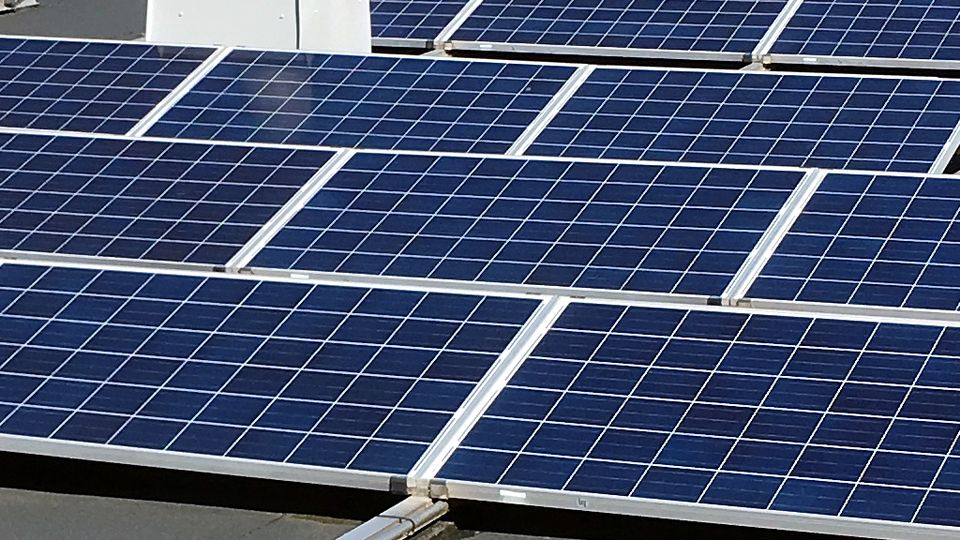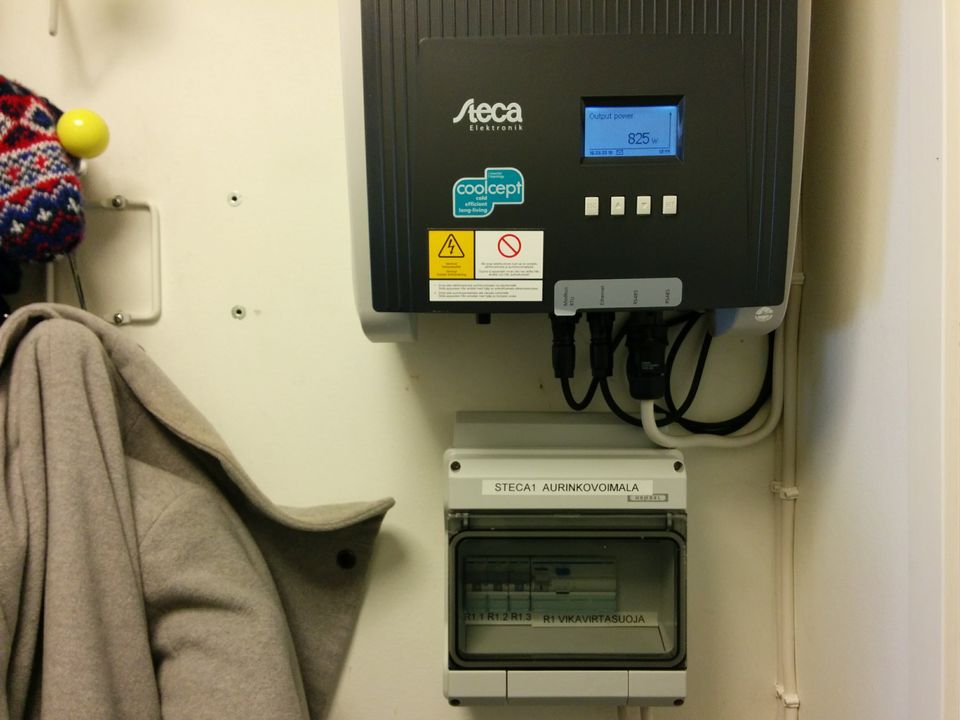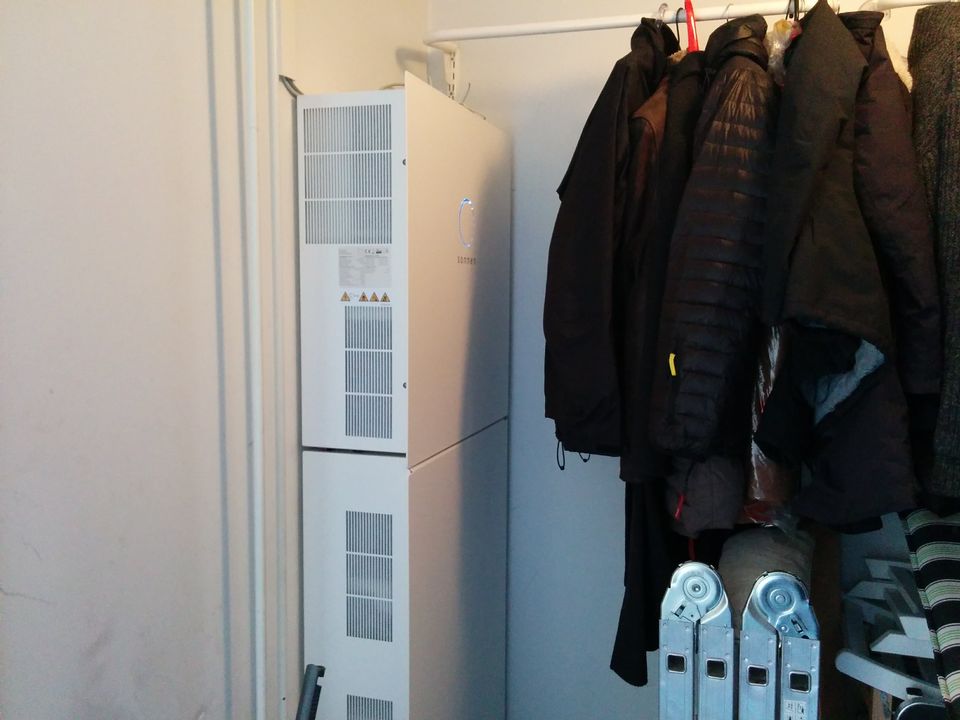Finnish solar industry looks for boost from better storage

A dozen solar panels gleam in the sun on the roof of a semi-detached house in Herttoniemi, eastern Helsinki. In March, some of the panels are still covered with snow, but the homeowner says that the longer, brighter spring days are already spurring a noticeable increase in electricity production.
“Yesterday we had an output of 1,000 watts. Sometimes the summer it gets up to 3,000 watts a day,” says homeowner Timo Juutilainen.
With a gently-sloping south-facing roof on the seashore, the location is ideal for solar energy production in northern Europe. Juutilainen installed the panels two years ago and has been satisfied with how they work.
A month ago, the family put in an electricity storage unit that retains electricity generated by the panels for 3-4 hours.

“I want to store the electricity that’s produced during the day so that we can use it in the evening and at night. Up until now, most of the electricity we’ve produced has gone back to the power grid for quite a small compensation fee,” explains Juutilainen.
Finland’s energy regulator allows only small tax breaks for the installation of solar capacity by households, and excludes solar power entirely from the feed-in tariff system intended to encourage renewable energy production by offering set prices for electricity generated by some renewable sources.
The government has no targets for solar energy production, preferring to focus renewable energy policy on wind power, biogas and forest industry products.
Keep your own power for your own use
Solar energy storage batteries for private homes are a relatively new concept. Juutilainen’s unit was installed by Helsinki city power utility Helen, which only began offering the product to homeowners late last year. The company estimates that such units can boost solar panels’ capacity utilisation factor to more than 90 percent.
“With storage, you avoid having to transfer your own production to the network, where you don’t get very good compensation, and there are no signs that you will be able to do so within the foreseeable future,” says Kristiina Siilin, project manager at Helen.
The nominal storage capacity of Helen’s solar electricity packages ranges from six to 16 kilowatt-hours (kWh).
Several other storage unit alternatives for small houses are available on the Finnish market. For instance Naps Solar Systems, also based in Helsinki, sells batteries with a capacity of 4-16 kWh. Meanwhile an Espoo firm, Eaton, plans to bring units with 4.2-9.5 kWh storage capacity onto the market this year.
“The batteries are the same as those used in Nissan cars,” notes Pasi Pesonen, an executive at the company.

The Juutilainens’ storage unit is about the height and width of a large refrigerator, but only 25 cm deep. The storage unit must always be set up in a warm indoor location. The control unit is on a wall in the front hall, along with the inverter, which gauges how much energy is coming in.
Ecological, not financial reasons
The Juutilainens have invested about 20,000 euros in their solar system, and have not made exact calculations as to how long it will take to pay for itself.
“I haven’t dared to figure that out, because I guess that it probably won’t pay off for at least 20 years. The usage costs are nil, though,” says Juutilainen.
Siilin acknowledges that buying solar panels and a storage unit does not yet make sense in purely financial terms.
“The fact that you save on electricity transfer fees and taxes is not enough to make it profitable within the equipment’s lifetime, but generally the values in these investments come from somewhere else besides the payback time,” says Siilin.
For Juutilainen, the investment was motivated by a desire for more environmentally sound energy production.
“I didn’t buy it for business reasons but for ecological reasons. I also wanted to show the others in our housing association that they could install one of these, too,” says Juutilainen.
Prices set to drop
Electricity storage units are still new, expensive products, so sales have been minimal so far. For instance, Helen has only sold a few of them.
“There are several installations underway and several other customers are interested. But we expect sales to pick up,” says Siilin.
Naps Solar Systems says it has installed about 10 storage units for detached houses in the Uusimaa region so far.
“At the moment, these are being bought by people who’re interested in technology and those who want to produce their own energy,” says sales director Markus Andersen, who also chairs the Finnish solar technology association.
Growth expectations are high at Naps too, though.
“Within two years, buying solar panels and electricity storage units will become financially viable and demand will rise significantly,” predicts Andersen, based on price trends for solar electricity systems and developments in battery technology.
Related stories from around the North:
Canada: Arctic nickel, not oil, could soon power the world’s cars, Blog by Mia Bennett, Cryopolitics
Finland: Nuclear plant construction in North Finland goes ahead despite lack of permit, Yle News
Norway: Dwindling interest in Norway’s Arctic oil raises many questions, The Independent Barents Observer
Russia: China wants in on Russian wind park project, The Independent Barents Observer
Sweden: Arctic winds: construction start for Europe’s biggest wind park, The Independent Barents
United States: Big questions emerge over $43 billion gas-export deal between Alaska and China, Alaska Dispatch News



